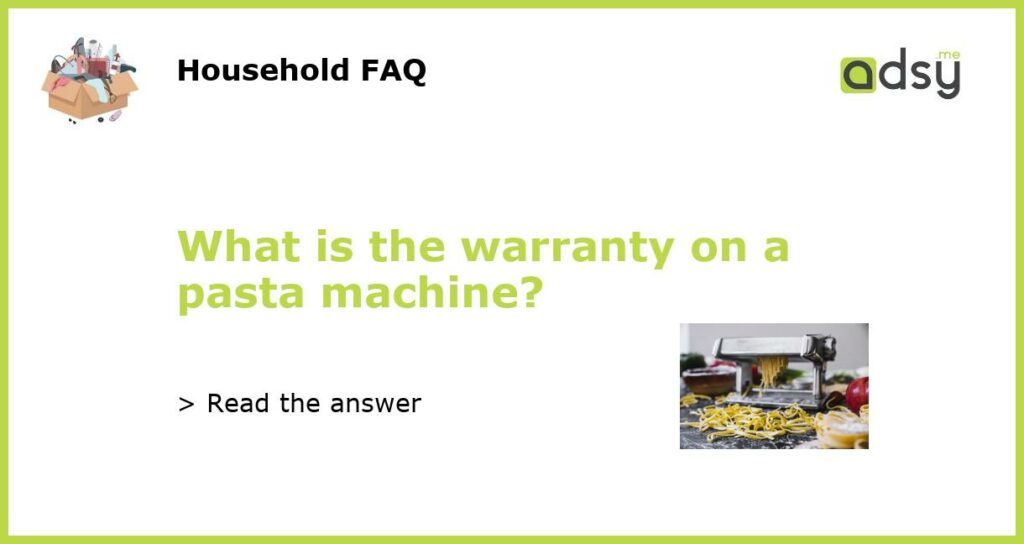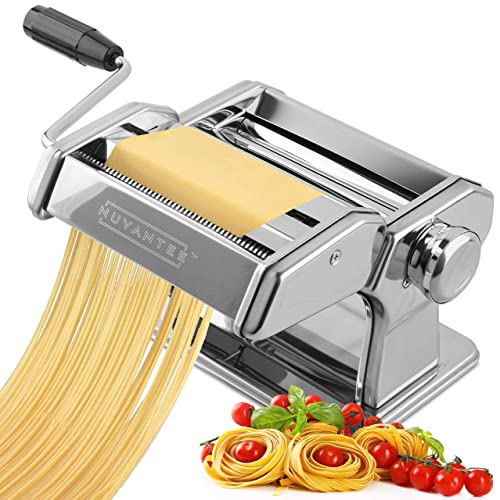Understanding the Warranty on a Pasta Machine
When investing in a new kitchen appliance, it’s important to consider factors such as durability, performance, and warranty. A pasta machine is no exception. But what exactly is the warranty on a pasta machine? In this article, we will explore the different types of warranties offered by manufacturers, what they typically cover, and some important considerations to keep in mind before making your purchase.
Types of Warranties
Pasta machine warranties can vary depending on the manufacturer and model. There are generally two main types of warranties that you might come across:
- Manufacturer’s Warranty: This is the standard warranty provided by the manufacturer for a specific duration, typically ranging from 1 to 5 years. It covers any defects in materials or workmanship that may arise during normal use of the pasta machine. If any issues occur within the warranty period, the manufacturer will repair or replace the machine at no cost to the customer.
- Extended Warranty: Some manufacturers or retailers may offer extended warranties for an additional cost. These warranties typically provide coverage beyond the standard manufacturer’s warranty, giving you extra peace of mind. It’s worth noting that extended warranties can be quite expensive and may not always be necessary, so consider your options carefully.
What’s Covered in a Warranty
While the specifics can vary, a standard pasta machine warranty typically covers manufacturing defects and malfunctions. This includes parts and labor for repairs or replacements. However, it’s important to read the warranty terms and conditions carefully, as some exclusions or limitations may apply. These could include damage caused by misuse, improper maintenance, or accidents. It’s also worth noting that warranties generally do not cover normal wear and tear.
If you have any concerns or questions about what is covered by a warranty, reach out to the manufacturer or retailer for clarification. They will be able to provide you with the specific details of the warranty and any additional information you may need.
Warranty Considerations
When purchasing a pasta machine, there are a few important factors to consider regarding the warranty:
- Duration: Take note of how long the warranty lasts. A longer warranty period can indicate the manufacturer’s confidence in the quality and durability of their product.
- Terms and Conditions: Read the fine print of the warranty to understand any limitations, exclusions, or requirements. This will give you a clear understanding of what is covered and what is not.
- Customer Support: Research the manufacturer’s reputation for customer support. A reliable manufacturer with good customer service can make the warranty process smoother and more efficient if you ever need to make a claim.
- Availability of Parts: Check if the manufacturer provides easy access to spare parts for the pasta machine. This can be particularly important if you plan on using the machine frequently and potentially need to replace certain components down the line.
- User Reviews: Look for user reviews and feedback online to see if there are any common issues or concerns regarding the warranty or reliability of the pasta machine.
Registering Your Warranty
Some manufacturers may require you to register your warranty within a certain timeframe to activate it. This is often done online through the manufacturer’s website or by filling out a registration card included with the product. Make sure to follow the instructions provided to ensure your warranty is valid.
Taking Care of Your Pasta Machine
While a warranty can provide added protection, it’s essential to properly maintain your pasta machine to ensure its longevity. Follow the manufacturer’s instructions for cleaning and maintenance, and avoid using the machine in ways that could cause damage or premature wear. Taking good care of your pasta machine can minimize the risk of issues and help preserve its performance over time.






